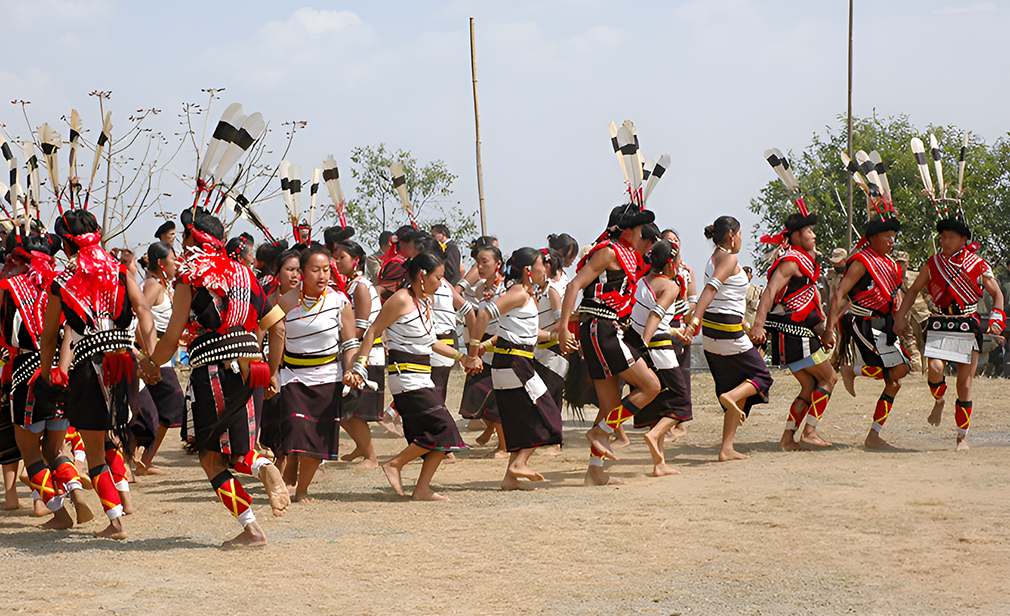Giving thanks: Harvest and the human spirit
The Ngada Festival is a joyful ode to the conclusion of the harvest season. For eight days, the Rengma people of Nagaland come together to dance, sing, feast, and forgive. It's a time when the entire community unites to express gratitude for the bountiful harvest. This celebration, considered as the mother of all festivals, begins with a vital tradition. The mother of each household tastes the newly harvested grains before anyone else, ensuring that the spirits remain appeased. Every act, every ritual during this festival holds deep significance.
A festival of renewal and reconciliation
At the heart of the Ngada Festival lies a profound spirit of renewal and reconciliation. It's a time when connections, both old and new, are celebrated with an abundance of food and drink, mending any rifts that may have strained relationships throughout the year. The Rengma people believe that during this joyous occasion, the souls of their departed loved ones return to partake in the festivities. This deep-rooted tradition underscores a profound sense of respect and remembrance. Families take it upon themselves to meticulously tend to the graves of their ancestors, offering a generous portion of meat and libations in tribute to those who have gone before them. Yet, perhaps one of the most beautiful aspects of the festival is its ability to encourage forgiveness and healing. Past wrongs, whether intentional or unintentional, are consciously forgiven and cast aside, paving the way for a new beginning imbued with goodwill and understanding as the community ushers in the promise of the new year.
Resplendent rituals and joyous revelry
The Ngada Festival unfolds in a series of captivating rituals and festivities: The first day of the festival commences with households preparing rice beer. On the second day, Rengma people venture into the forest to collect banana leaves, a crucial element in the festival. The third day is a solemn occasion where women visit the graves of their departed loved ones, offering rice beer wrapped in banana leaves. The tasting of the beer begins with the eldest member of the household.
On the fourth day, men pay homage to their ancestors by visiting their graves. Dressed in their traditional attire, they also gather outside their morungs and have a small feast in which the women do not partake. Later during the day, men strut around village donning their ceremonial and warrior fineries where women follow them carrying beer.
On the fifth day, men visit all houses in the village along with music and folk dance. Each house offers a token of appreciation to the men. The sixth day is spent feasting and visiting houses in other villages. On the seventh day, all people venture out to the forest to collect firewood, banana leaves and vegetables for the feast. The festival culminates on the eighth day with a grand feast, where the entire village comes together to celebrate.




































